On the subject of auditioning, I could use some advice. The audition I have coming up is a cold reading from the script. In that situation, what would you say the casting director is looking for most - character or ability? Also, do you have any tips for how to distinguish myself from the other audtioners?
I'll answer in order of what I think our focus in auditions can be if we make the paradigm shift to reverse the power structure of the audition. What I mean by that is, as a casting director, actors give the folks behind the table all the power which is not the case so, how do actors reverse that and feel they have some power? One: stop worrying about what "they" want and do the work. As actors, we can't get inside the heads of the CD's/directors, but we can do our work: read, read, read the text (however long you have it, spend as much time as you can with it: sometimes that's an hour, sometimes a week, be a detective in the time you have); analyze it; make choices; COMMIT; etc.
1. How to distinguish yourself from other actors? Great question. I used to read for a CD friend in LA who hired actors she liked because she said that 98/100 actors gave the same reading. I didnt' believe her until I sat through my first day of readings. Those who distinguised themselves, revealed THEMSELVES. The great acting teacher, Uta Hagen, says that we all have the possibility of all characters within us because, as humans, we are all capable of all things. It is only our limitations which prevents us from doing all things: evil or good. If we will reach down and pull out what drives the character from our heart and soul, play what I call the magic "if I were the character, I would....", and reveal that, we would be different from everyone else. Truly. The other distinguishing thing is to really REACT to what you're getting vs. what you think is what the character "should" be doing in any given moment (I should be angry now). The great film director, Sidney Lumet, always reads himself with actors he is auditioning. During the reading, he will do something like drop a page from the side or, better yet, toss it. If the actor doesn't even acknowledge it, he will politely finish the read. If they see it, he is interested. If they react, he is compelled. If they react and use it back at him, he is fascinated.
2. Do they want to see character or ability? Great question. I think a couple of things: the character will be "different", see above, if you can reveal your soul through the character's circumstances. Ability is tricky. When I hold auditions, I feel like actors are more concerned with showing me "range" or ability, than the character. I don't want to see technique, I want to see the character and I also want to see what kind of actor is going to play that character. A local director, who is now a Tony award winner, says he would rather see an actor have a discovery or, better yet, make a change, in the moment, than emote. Characters in plays (or whatever type of media it is) are in crisis with a major dramatic problem to solve, whether that's a sitcom or Medea, and are, therefore, constantly having to change their tactics, be opportunists, see if what they're doing works and, if not, change; they must REACT. Actors tend to come into auditions and smear one color of what emotion they think the character "should" be feeling all over it and play that one thing. Human beings change by the second based on what's coming at them and what they are trying to do to others yet actors will tell me they think it's "inconsistent" to change frequently. HUH??? HUMANS do it all the time. Are you playing a human? The same CD friend from above who told me actors all play the same choices says that she looks for the "3 C's": character, choices, change followed by a 4th: commitment to the former 3.
Just my two cents worth. Anything else?

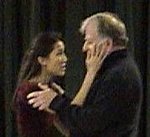





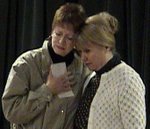
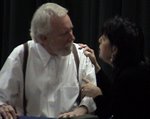



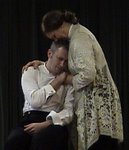



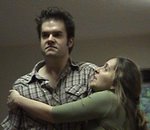





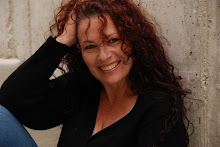
No comments:
Post a Comment